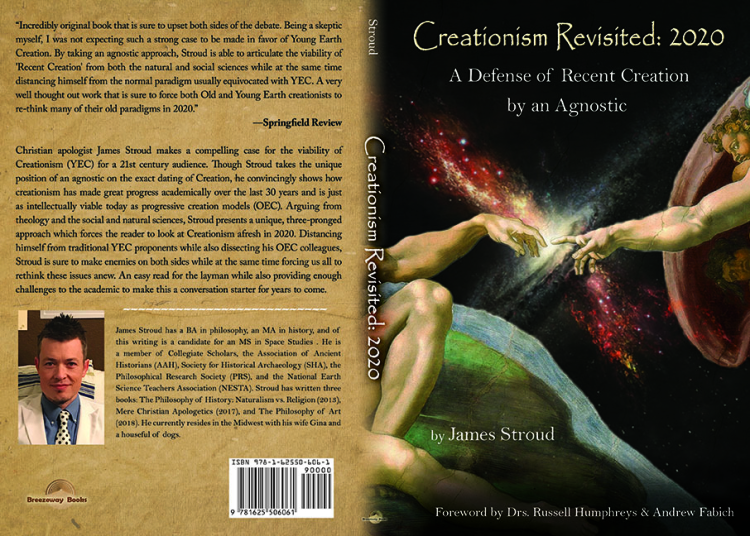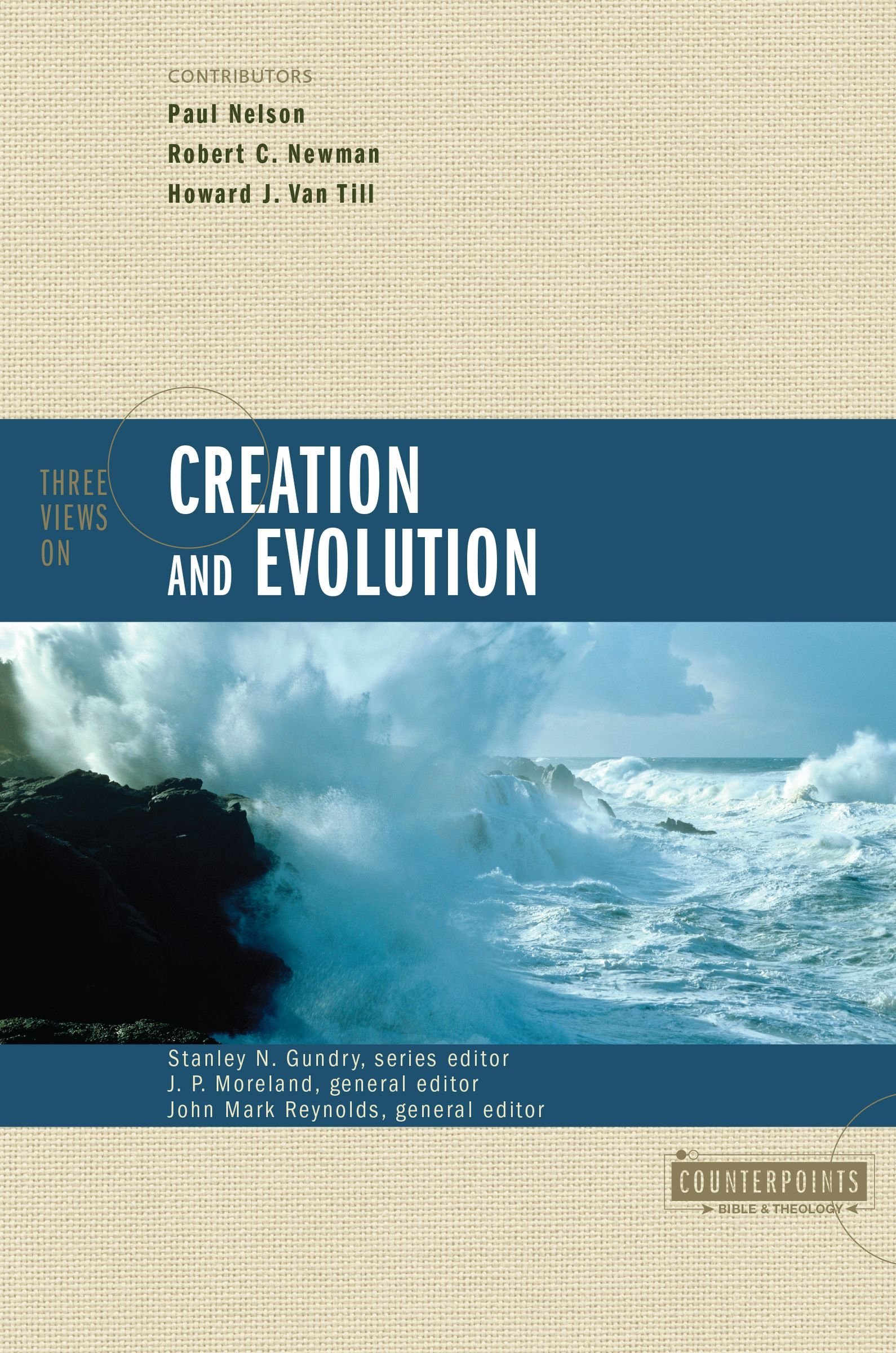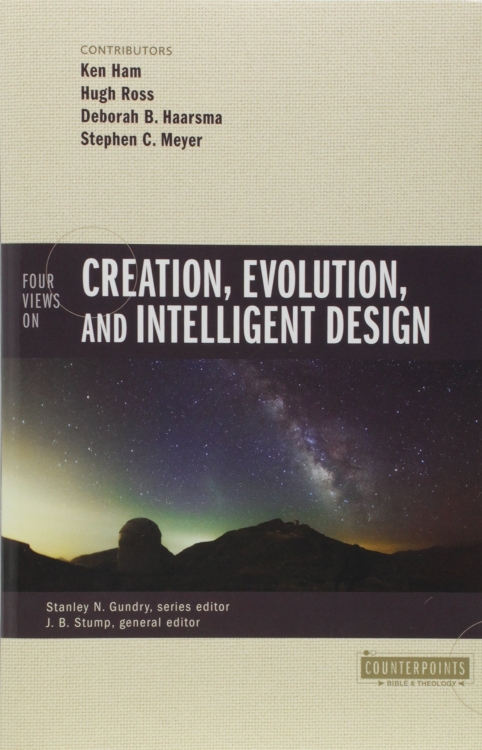Creation History & the Age of the Earth?
{Creation History not Creation Science?}

*Good News - I am currently working with a publisher on "Why the YEC position is a viable one" even though I am an agnostic on the topic. I was at about 600 pages and have reduced it to 400 and now needing to kill another 100 pages but Lord willing should be out early 2020. Though I am an agnostic on the topic, I think it is important to show why YEC remains a very strong/robust (and yes - intellectually viable position) today. Even if it turns out to be wrong it is still viable and has come a long ways in the last 20 years specifically despite groups like AIG who (as I explain in the book) have held-back and dumbed-down YEC in a lot of ways and those I worked with in the past (like William Lane Craig) had given not only false characterizations and false dichotomies/equivocations but is simply wrong as I show in the book and from conversations him and I have had (especially when we and a few others traveled to Greece/Italy/Turkey in 2013).
![]() Just released!!! (check Amazon for details or free PDF: https://creationhistory.org/page80
Just released!!! (check Amazon for details or free PDF: https://creationhistory.org/page80
![]()
As I have always stated I am in the same camp of Francis Schaeffer when i maintain that we MUST never be tempted to jettison a historic Fall or Adam & Eve (like the William Lane Craigs and other more "liberal" scholars seem to conclude). But at the same time We mustn't become so dogmatic as the Ken Ham's that creation MUST be 4004 BC at 12am. Thus the only plausibly conclusion would be that of an agnostic when it comes to the exact date of creation.
*Now with that being said, I can state that a recent creation makes the most sense from both the social sciences as well as the Bible (there is simply no way to get "billions" of years in there without a great deal of blind-faith. YES - I did say blind-faith. My speciality is ancient history (a Masters degree magna cum laude) from a secular university; so I say this simply as a matter of fact? I have worked with William Lane Craig (traveled with him to various places overseas) as well as a plethora of scientists and historians from the Discovery Institute; most of whom maintain billions of years since creation.
Yet - when I ask them any of these questions I cover in my published works (The Philosophy of History) they all (including Hank Hannegraff) all admit this is more based on "faith" than any real knowledge. They might allude to starlight, various dating methods, etc. but these are not only usually contradictory as well as based on many assumptions, but "if" God exists there is simply no good grounds on us (as finite beings) to dictate how God "must" have done it. When pushed all of my "billions of years" colleagues have no solid answers. This is fine, but one reason I have broken off a partnership with Reasonable Faith (William Lane Craig) is because of his utter disrespect of a recent-creation viewpoint (to the point of name-calling). Yet when I pushed Dr. Craig on this all he could say is "it would make God a deceiver because the universe appears old". I pushed him that "virgins normally do not give birth so what are we to do with that?" He quickly offered: "We throw out modern science because we must have a virgin birth!" (I hope you can see the extreme inconsistencies here...) Moreover, why would this make God a deceiver? Was Adam/Eve made babies? What about the vegetation, etc.? Of course not. So my point being there is simply no reason whatsoever to be scared intellectually of a recent creation.
Moreover, as I have written and discussed extensively, the social sciences (especially history) literally seems to begin very recently. A fact that not even the most ardent secular historian will agree with. They will of course "hand-wave" that this is just due to a lack of any ability to write/record history but this is simply an assumption based on blind-faith. So I (unlike William Lane Craig or Ken Ham) can remain open to the evidence and to God's meta-narrative that may be beyond my scope.
Below are a few videos (I especially recommend the one on the "Pyramids and the Flood" because it outlines quite well why I am a supporter (though agnostic on the exact timing) to the older 5500 BC date of creation instead of the conventional 4004 or 4128 BC dates. Plus this aligns quite well with the timing of a Flood of Gilgamesh as well as that of other cultures (such as India) and the Tower of Babel. Exciting times but I would HIGHLY encourage you to not be dissuaded into researching recent creation as a plausible hypotheses (and if anyone you meet along the way (such as William Lane Craig) resorts to name-calling tell him I (James Stroud) would be more than happy to discuss on the topic and that will probably quiet him down if he remembers our previous conversations (one of which is on his RF website). ;o)
More and more are coming to see the credibility of the 5500 dating as outlined here as well so do not let the "Answers In Genesis" types intimidate you; theirs is more based on not going back on previous talks/publications which would cost them dearly I fear:
I highly recommend ALL sides read the above books (click on to order). The first 2 has differing views from a group of Old-age/Young-age creationists so you can see the positive and negative arguments from which they present from the opposing sides in civil discourse. *The far-right is more where I fall holistically by Francis Schaeffer. Here he summarizes that he is an agnostic on the exact age of the cosmos but we can NOT (ever) abandon a historical fall, historical Adam/Eve, historical resurrection, bible, etc. if we wish to maintain anything "Christian" or biblical about Christianity.
A quick example for those that will assert: "Teaching kids the universe might only be +/- 10,000 years old will stunt their education!!!" First of all IQ levels have been plummeting at an alarming rate since the early 1970s (reversal of the Flynn effect); moreover students graduating from public schools today will be lucky to be able to tell you who was even in WWII or the Vietnam war... Moreover as the below short article shows, the biggest fears of the secularists (on a shoestring budget) still outperform public schools (for those who have ears let them hear...):
As crazy as it sounds, the Seventh Day Adventist Church (which this site or me is not affiliated); has the largest Christian Education School System in the world next to Roman Catholic, and teaches a literal six-day creation based on the Bible has scored higher in every category than our public secular school system. **This should be an impossibility according to mainstream media, but google it for yourself and research it, (I did); you will be just as surprised and impressed as I was.
*A tax-funded/government supported school with endless $$$ get beat in every category of academia by a low-budget 6-day creation school system. (This is not some small "per capita" system as the Adventist school system is apparently the second largest education system in Christian education). Ironic how the secularist/atheists are so worried about this type of teaching "eroding" their mental capabilities; and then they beat the government funded school in every category (including science). I must chuckle quietly to myself... ;o)
Study Shows that Adventist Education Improves Learning
Elissa Kiddo, Ed.D., Professor of Curriculum and Instruction at La Sierra University, relates some findings from the CognitiveGenesis research project she directs.
"Between 2006 and 2010, my colleagues and I analyzed test scores of 51,706 students, based on the Iowa Test of Basic Skills for Grades 3-8, the Iowa Test of Educational Development for Grades 9 and 11, and the Cognitive Abilities Test for all grades, as well as surveys completed by students, parents, teachers, and school administrators.
In each subject category, students attending Adventist schools scored higher than the national average. They also scored higher than their expected achievement based on assessment of individual ability – a factor few other schools measure.
One of our most dramatic findings is that students who transferred to Adventist schools saw a marked improvement in academic achievement. The more years a student attended an Adventist school, the more his or her performance improved."
The study also reports that socioeconomic status and funding are not factors. In fact, according to "research by Dave Lawrence, a graduate student at La Sierra University. . .students at Adventist schools that spend as little as $2,000 to $4,000 per pupil are roughly at the same achievement level as students in schools that spend as much as $12,000 per student. Mr. Lawrence found no significant correlation between a school's budget and student achievement."
The piece suggests that the cause is the holistic philosophy of Adventist education--with its emphasis on the mental, spiritual, and the physical. It would be interesting to see a study that compares how that oft-referenced tripartite signifier of Adventist education compares to other faith-based private schools with standardized curricula and physical education components.
For real education reform, take a cue from the Adventists
Education reform has taken center stage lately as Americans struggle to close the oft-condemned achievement gap . But quietly in our midst, the second largest Christian school system in the world has been steadily outperforming the national average – across all demographics.
Now, I'm not advocating for religious instruction to be included in school curricula. Rather, what my research indicates is that holistic learning – an education that doesn't erect artificial barriers among disciplines and between mind, body, and spirit – does indeed result in greater student achievement.
Adventist schools outperform their peers
Since 2006, as part of the CognitiveGenesis study, two colleagues and I have gathered data on more than 50,000 students enrolled in Seventh-Day Adventist schools. (Unbeknownst to many, the Adventist Church runs a Christian school system second only in size to the Roman Catholic parochial schools.) While we have long believed in the effectiveness of the holistic approach Adventist schools take, we wanted to quantify, empirically, how well students in Adventist schools perform.
Even we were surprised by the results. Our four-year, independently financed study showed that students at Adventist schools outperformed their peers at the national average in every subject area.
Between 2006 and 2010, my colleagues and I analyzed test scores of 51,706 students, based on the Iowa Test of Basic Skills for Grades 3-8, the Iowa Test of Educational Development for Grades 9 and 11, and the Cognitive Abilities Test for all grades, as well as surveys completed by students, parents, teachers, and school administrators.
In each subject category, students attending Adventist schools scored higher than the national average. They also scored higher than their expected achievement based on assessment of individual ability – a factor few other schools measure.
One of our most dramatic findings is that students who transferred to Adventist schools saw a marked improvement in academic achievement. The more years a student attended an Adventist school, the more his or her performance improved.
Socioeconomic status and funding aren't factors
A skeptic might argue that private schools such as those run by the Adventists are made up primarily of wealthy, white, upper-middle-class students, hence the reason for higher achievement. Not so.
Our research shows the demographics of Adventist schools are closer to those of public schools, with high economic and socioeconomic diversity. Enrollment is open, meaning students are admitted without the kind of screening for ability that many other private schools employ. In North America, the Adventist Church runs almost 1,000 schools, many of which are small and rural. We found no relationship between the size of the school that students attended and achievement.
Anchor skipper link. Should be placed at the end of the Related Items pod and before the next paragraph -->Significantly, in this time of decreasing budgets for public schools , we found no link between per-pupil spending and student achievement. Research by Dave Lawrence, a graduate student at La Sierra University in Riverside, Calif., indicates that students at Adventist schools that spend as little as $2,000 to $4,000 per pupil are roughly at the same achievement level as students in schools that spend as much as $12,000 per student. Mr. Lawrence found no significant correlation between a school's budget and student achievement.
The advantages of a holistic approach
So how do we account for the Adventist advantage? We believe it lies in the holistic approach these schools take – a commitment to educating mind, body, and spirit. Unlike public schools, Adventist schools across the country have a standard curriculum. It includes the traditional "three R's" along with emphasis on spiritual and physical development. There's a coherence and a connectedness between Adventist schools that doesn't often exist in other systems.
Some of the biggest predictors for student achievement, according to statistical models we developed, include whether students have a positive spiritual outlook, have a healthy relationship with their parents, and take care of their own health. These are all attitudes that can be cultivated, and they point to the importance of a holistic approach to education.
In recent years, the Adventist Church has been the subject of much public fascination because of its focus on health, longevity, and wholeness. (PBS ran a documentary earlier this year, "The Adventists," and the book "The Blue Zones" came out in 2008.) But our research shows that Adventist education can also be a learning lab, showing how K-12 students nationwide can excel beyond expectations.
True reform of the public school system will take hard work and innovation, but the Adventists provide a model that can help reformers hit the "reset" button . Eliminating artificial barriers between subjects and helping students see the link between how they live and how they learn are first, but crucial, steps in laying the foundation for true reform.
Elissa Kido is a professor of education at La Sierra University, a Seventh-Day Adventist college, where she directs the CognitiveGenesis Research project.




